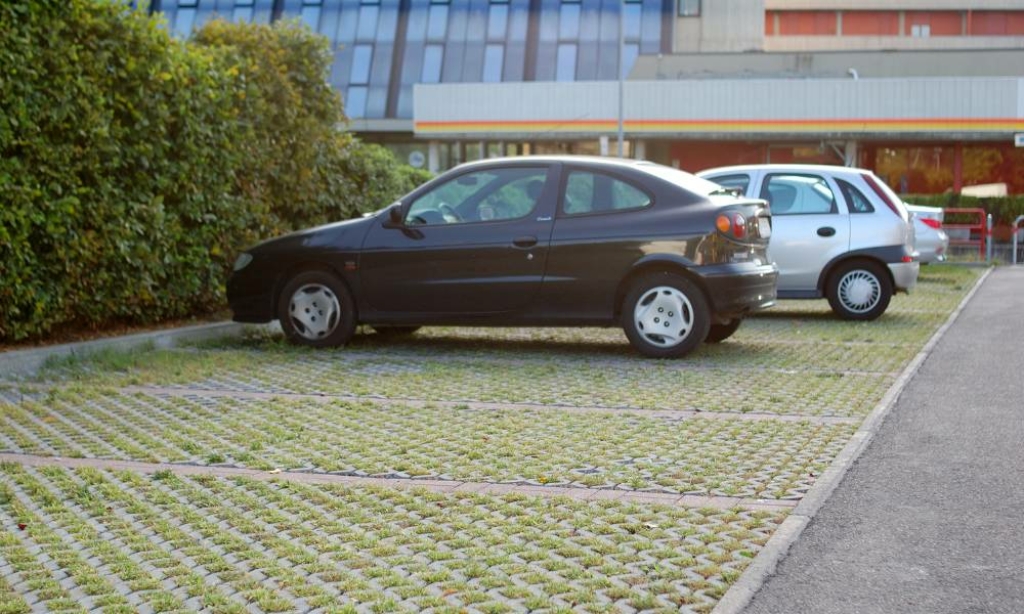In an era where environmental sustainability is gaining increasing importance, the use of permeable pavers has emerged as a groundbreaking solution for various urban challenges. These innovative pavers are designed to allow water to pass through them, promoting natural drainage, stormwater management, filtration, and other significant benefits.
This article will delve into the science behind permeable pavers, explaining their functionality and highlighting their importance in addressing environmental concerns. Furthermore, we will explore the specific advantages of permeable pavers offered by StoneSet Permeable Paving, a leading Australian company in this field.

Porosity and Infiltration Rates
Permeable pavers are characterized by their high porosity, which enables them to facilitate the infiltration of water into the ground. Unlike traditional impervious surfaces like concrete, permeable pavers consist of carefully designed materials that allow water to percolate through the surface and into the underlying soil. The porosity of these pavers determines their infiltration rates, which measure how quickly water can pass through them.
StoneSet Permeable Paving excels in providing pavers with optimal porosity and infiltration rates, ensuring efficient water management systems that meet Australian standards.
Stormwater Management
Permeable pavers play a pivotal role in effective stormwater management. By allowing water to infiltrate into the ground, they reduce surface runoff and prevent overwhelming drainage systems during heavy rainfall. This helps prevent flooding and erosion, minimizing the burden on municipal stormwater infrastructure.
In urban areas where impervious surfaces dominate, stormwater runoff often carries pollutants and contaminants, degrading water quality in nearby water bodies. Permeable pavers mitigate these issues by providing a natural filtration system that reduces pollutants and sedimentation, protecting the overall ecosystem.
Filtration and Water Quality Improvement
Another critical function of permeable pavers is filtration, which aids in improving water quality. As water passes through the pavers, they act as natural filters, removing pollutants, sediments, and other contaminants. This process significantly reduces the amount of pollutants entering local water bodies and protects the overall ecosystem.
StoneSet Permeable Paving’s high-quality materials and advanced filtration mechanisms contribute to the preservation of water quality, ensuring a healthier environment. By incorporating permeable pavers into urban design, Australia can take significant strides toward meeting water quality targets and protecting precious water resources.
Groundwater Recharge
Permeable pavers contribute to replenishing groundwater levels, an essential aspect of sustainable water management. The infiltration of water through the pavers allows it to recharge the underlying aquifers, replenishing the natural water table. This helps maintain the water balance in urban areas, reducing the strain on water supplies and providing long-term ecological benefits. In regions facing water scarcity or drought, groundwater recharge becomes even more crucial.
StoneSet Permeable Paving recognizes the significance of groundwater recharge and offers pavers that promote this vital process effectively. By incorporating these pavers, communities can actively contribute to sustainable water management and secure water resources for future generations.
Thermal Benefits and Urban Heat Island Effect
Permeable pavers can have a significant impact on mitigating the urban heat island effect. Traditional paved surfaces absorb and retain heat, contributing to higher temperatures in urban areas. In contrast, permeable pavers have a lower heat absorption capacity, as the water infiltration cools the surface and the surrounding environment.
This helps reduce the overall temperature, improving the microclimate and enhancing the comfort of urban spaces. By implementing permeable pavers in parking lots, sidewalks, and other paved surfaces, StoneSet Permeable Paving’s innovative solutions assist in combating the urban heat island effect, creating cooler and more sustainable environments.
Also Read: Top Benefits Of Asphalt Pavements And Seal-Coating
Conclusion
Permeable pavers offer an innovative and sustainable solution to various urban challenges. With their porosity, infiltration rates, stormwater management capabilities, filtration properties, groundwater recharge benefits, and thermal advantages, these pavers provide a range of environmental benefits.
StoneSet Permeable Paving stands as a prominent Australian company dedicated to providing high-quality permeable pavers that contribute to sustainable water management, improved water quality, and a greener urban environment. By adopting permeable pavers, communities can make a positive impact on the environment while enjoying the aesthetic and functional benefits they offer.